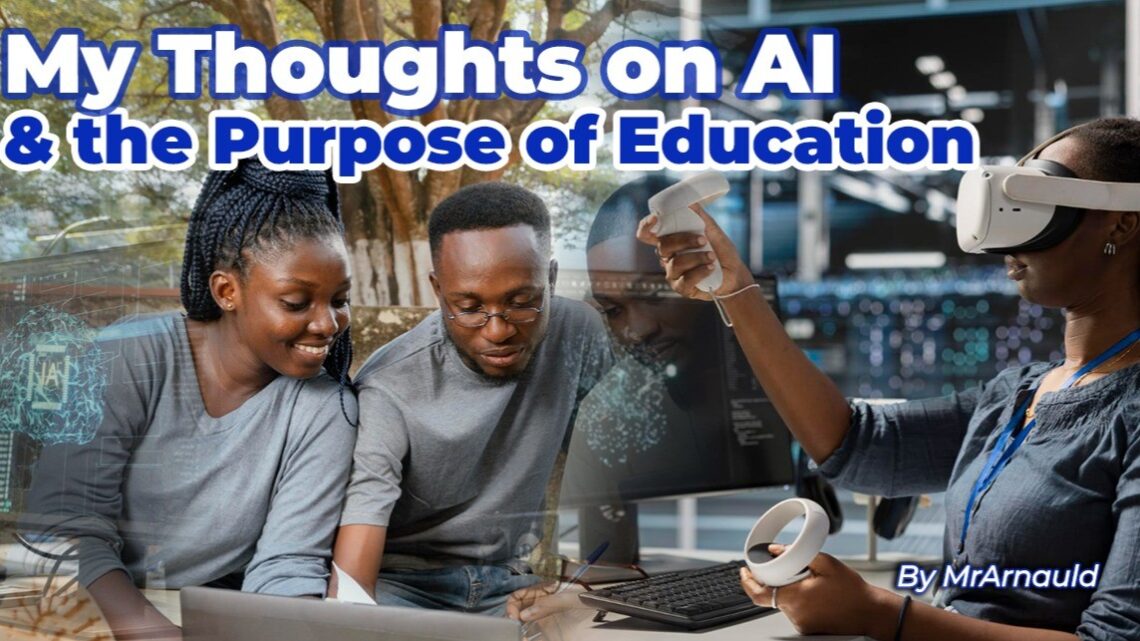
Why do we educate?
For many people, education has long been viewed as a pathway to securing a job, earning a living, and climbing the social ladder. But after running my educational project here in Africa for over a year, I’ve realised that the purpose of education goes far beyond employability. At its core, education is about preparing people to think, to adapt, and to create meaning in a world that is always changing.
The rise of Artificial Intelligence (AI) makes this truth even more urgent. AI is transforming the way we work, the way we learn, and the way we see the future. Here in Africa, it presents both a challenge and an opportunity. The challenge is obvious: AI can replace tasks, jobs, and even entire industries. For students, it also brings the temptation of dependence—relying on AI to answer every question, write every essay, or solve every problem. But when students outsource their thinking, they lose the most valuable skill of all: critical thinking. And without critical thinking, no amount of technology can make someone truly prepared for the future.
Yet, the opportunity is just as real. I myself use AI every day, and I even use AI to correct my grammar, given my dyslexic nature. AI can democratize access to knowledge, accelerate innovation, and give young Africans the tools to compete globally—if they are equipped with the right kind of education. That means teaching them how to think, not just what to think. Facts and figures may change. Jobs will evolve. Technology will always move faster than curriculum. But the ability to question, analyse, and adapt will always remain relevant.
This leads me to another challenge Africa must address: brain drain. Too often, our brightest minds leave for opportunities abroad, taking with them the potential to solve problems here at home. Education must not only prepare Africans to succeed globally—it must also inspire them to build locally. Because if we are to compete in the age of AI, we cannot afford to keep losing our thinkers and innovators to other continents.
After a year of working closely with students, one truth stands out clearly: education is not about preparing people for the jobs of today. It is about empowering them for the unknowns of tomorrow. If we get education right, AI will not steal opportunities from us. Instead, it will multiply them.
That is why I believe we need to rethink the purpose of education. We don’t just need more schools, more courses, or more certifications. We need to teach with purpose, to inspire curiosity, and to cultivate resilience. Because the purpose of education is not to create workers—it is to create thinkers. And in a world where AI is everywhere, it is the thinkers who will lead, innovate, and shape the future.
These are my reflections after a year of building and learning alongside brilliant minds here in Africa. But I’d love to hear from you—what do you believe is the true purpose of education in the age of AI?